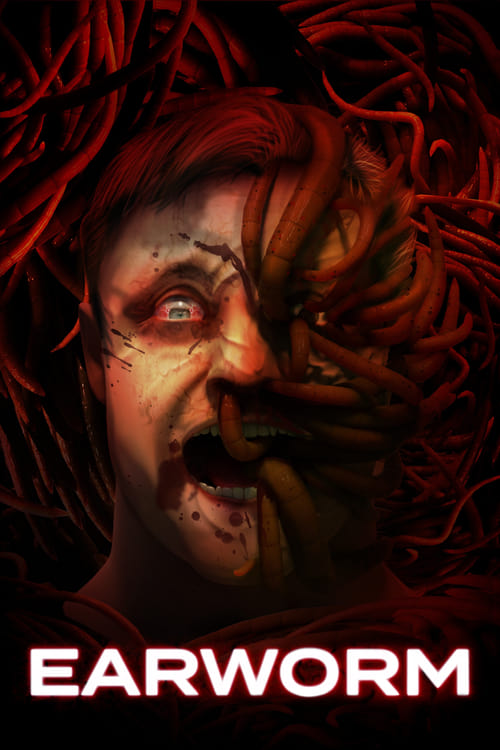Earworm – Film Review
Published February 23, 2024

The promise of innovation within the horror genre often piques the interest of its dedicated audience, sparking intrigue with the potential for fresh scares, original premises, and haunting narratives. Earworm, written and directed by Kyle Kleege, seemingly offered such a premise on the surface, but regrettably, it unfolds as a perplexing, underwhelming, and convoluted addition to the horror lexicon that fails to capitalize on its intriguing setup. With a storyline involving a socially awkward man, Henry Adams (played by Evan Jones), venturing into a dubious self-help group leading to unforeseen dangers, coupled with a detective storyline following bizarre murders, the stage was seemingly set for an enthralling experience. Unfortunately, the execution does not live up to its initial promise.
The film begins with potential, introducing us to Henry, whose debilitating social awkwardness renders his daily interactions painfully difficult. The early moments capture the audience’s sympathy and intrigue, setting up what could have been a compelling dive into the psyche of its protagonist. However, as the story unfolds, the narrative loses focus, becoming bogged down by its convoluted plot and an overreliance on cliché horror tropes that neither surprise nor scare.
Evan Jones, portraying Henry, delivers a performance that is commendable given the material. There’s a sincerity to his portrayal of loneliness and despair that momentarily shines through the otherwise murky script. Unfortunately, the character’s development is stunted by erratic storytelling that leaves his journey feeling superficial and his decisions increasingly unbelievable as the plot progresses.
Richard Lounello as Detective Williams and Laura Graver as Camille are similarly let down by the script. Lounello’s detective comes across as a generic archetype lacking depth, making it challenging for the audience to invest in his investigation into the eerie murders. The detective’s storyline is meant to intersect intriguingly with the main plot, but the connections are handled so clumsily that any potential for suspense or surprise is thoroughly diluted.
Moreover, Laura Graver‘s Camille, intended as a beacon of light in Henry’s darkening world, is woefully underdeveloped. The chemistry between Henry and Camille feels forced, and her character’s motivations are as thinly sketched as the rest of the narrative. The performances across the board are not necessarily the issue; rather, it is the film’s failure to flesh out these characters in any meaningful way that dampens the emotional impact.
John Romeo as Dr. Corvath delivers what could be the film’s most compelling performance, though this is not saying much given the overall quality. His portrayal hints at the menace and manipulation that could have been the film’s driving force. However, the script fails to build upon this foundation, leaving his character’s malevolent potential tragically underexploited.
From a technical standpoint, Earworm demonstrates occasional flashes of visual flair, but these moments are too sporadic to salvage the overall experience. The cinematography occasionally captures the intended eerie atmosphere, but such efforts are undermined by a disjointed narrative and poor pacing. The score, aiming for an unsettling ambiance, often feels mismatched with the on-screen action, further detracting from the film’s attempt to build tension.
Perhaps one of the most grievous errors of Earworm is its misuse of the horror genre’s most effective tool: subtlety. The film leans heavily into graphic displays and shock value that, while initially jarring, quickly become tedious. This overreliance on shock tactics not only cheapens the horror experience but also highlights the script’s inadequacy in crafting a genuinely terrifying or original story.
At its core, Earworm attempts to explore themes of isolation, manipulation, and the dark underbelly of self-help culture. Yet, these potentially intriguing themes are lost in a maze of poor execution, weak character development, and a lack of narrative coherence. What could have been a fascinating psychological horror instead emerges as a forgettable entry in the genre, unlikely to resonate with audiences or leave a lasting impression.
Earworm, despite its promising premise and fleeting moments of potential, ultimately succumbs to a litany of pitfalls that plague it from start to finish. Its failure to develop compelling characters, craft a coherent and engaging narrative, and innovate within the horror genre render it a frustrating viewing experience. For a film that sought to burrow into the minds of its audience like its titular concept, Earworm is, regrettably, far too easy to shake off and forget.
